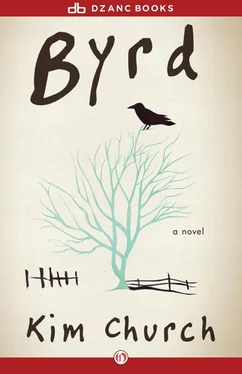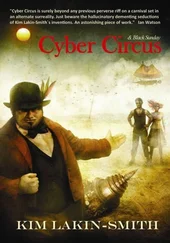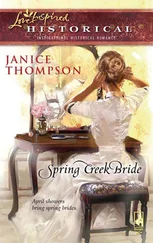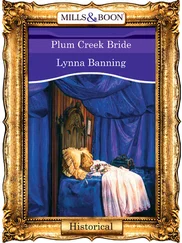On the day her store is robbed, Addie is away at an estate sale, buying a rare set of Sandburg Lincolns. She also picks up a grab-box for William. She doesn’t open it. She wants to be surprised along with him.
She remembers the grab-box John Dunn gave her when she came home from the hospital without the baby. It had a set of shrimp forks, three crocheted doilies, a dead chrysanthemum, and — the treasure — a pair of worn-out bedroom slippers, an old woman’s dirty terry-cloth mules, fastened together with a plastic thread, no doubt by the tagger at the sale, but John Dunn pretended the fastener was the original, that the old woman had never bothered separating her slippers. “It was the shoes that killed her,” he said, and slid his big feet into them and imitated the old woman shuffling around her house, her tiny steps unable to keep up with the rest of her body. He pitched forward, flailed his hairy arms, and landed in a heap.
Addie laughed, a loud, raw, ragged, awful laugh.
She wouldn’t laugh now. The older she gets, the less funny the thought of falling, especially falling alone.
Peale is evangelical about “spreading the words,” as he calls it. He thinks of bookselling as a helping profession, like therapy or ministry or law or medicine or matchmaking. To be good at it, you have to know your customers.
His first customer this morning is Mr. Olivetti, a small, stooped man who never shops but simply asks Peale to pick something out, buys it, takes it home and reads it. He records the title in a small memo pad he carries in his shirt pocket like a birdwatcher’s life list, then comes back in asking for new recommendations, never commenting on what he’s just read. Some people just don’t know how to talk about books, or think they don’t, or that they’re not supposed to. That doesn’t mean they aren’t changed by them. Today Peale sends Mr. Olivetti home with three Vonnegut novels that just came in, old paperbacks in excellent condition: Slaughterhouse-Five, Breakfast of Champions , and Cat’s Cradle . Who better than Vonnegut to change an old man?
Next it’s Bunny Miller with her weekly donation — a stack of historical novels and inspirational memoirs, all new titles, the books immaculate.
“Did you actually read these?” Peale asks her, as always. It’s hard to believe she could go through so many books and not leave a trace of herself in any of them. A mark or a dog-eared page or a cookie crumb.
Bunny answers, as always, “Why else would I give them to you?”
She always takes payment in store credit, which she never redeems. She could donate her books to the library for a tax deduction; Peale has pointed this out. Apparently she prefers the role of private benefactress.
Peale holds up one of the memoirs from this morning’s stack, a critically acclaimed bestseller. “What’d you think?”
“Hmp,” she says. “It’s okay. Nothing I couldn’t have written myself.”
“You should write a book, Mrs. M.”
“What on earth would I write about?”
“Write about everything you’ve read since Mr. M died.”
Bunny is a widow whose worst fear is having time on her hands and nothing to read. She purses her wrinkled old mouth, looks pensive. “Not a bad idea,” she says. “I could call it After Albert . Alliterative titles do quite well, I’ve noticed.”
As she wobbles out of the shop, a tattooed girl charges past her in a hurry, demanding “anything by Jane Austen.” (“A Jane Austen emergency,” Peale will say during his police interview.) Then a middle-aged mother comes in with her young son. The woman is looking for a book she read as a child, an autobiography, Gerald Durrell’s My Family and Other Animals . Peale checks the shelf. “Sorry,” he says. The woman’s son has dark hair and dark eyes and wears a backwards baseball cap that mashes his ears out to the sides. He isn’t one of those glazed-over video-game kids you see. He studies the shop as if it’s a foreign country. When he handles books he’s delicate, touching them with his fingertips. He slides a volume from the rare book shelf. The Happy Hollisters .
“That’s a great series,” Peale says, “if you like mysteries. Something happens on every page. I read them when I was your age, when everybody else was reading the Hardy Boys. How old are you? Nine, ten?”
The boy doesn’t answer. He is already reading.
“How much for the set?” the mother asks.
Peale is surprised. She doesn’t strike him as an impulse buyer or the kind of mother who routinely lavishes expensive gifts on her kid.
“It isn’t the complete series,” Peale says, “just the first ten. But it’s pretty rare to find them in sequence like this.” He tells her the price and she pays in cash: one hundred and sixty dollars, his biggest single sale of the month. “If you want to leave your phone number,” he says, handing her the pencil from behind his ear, “I’ll call you if we run across the Durrell.”
At eleven-thirty, Vivian tells Peale, “I’m taking my break.”
Vivian is in a dark mood. Selling books was supposed to be a temporary job, a phase — part of her young, hip, underpaid, intellectual single life. Now she’s thirty-two and doesn’t even like to read any more. Reading reminds her of everything she doesn’t have and probably never will.
She uses her morning break to meditate. Even a few minutes of silent chanting can help. “May I be happy, may I be satisfied.” She sits cross-legged on a small padded bench in the children’s section. Once or twice she is interrupted by customers; each time she returns to her chant. “May I have everything I need and want.”
She hears the bells on the front door when the robber enters, but she can’t see him.
“May all beings have everything they need and want.”
He is wearing a torn Hawaiian shirt over a turtleneck, khaki pants, scuffed boots. His gray hair is pulled back in a thin, greasy ponytail. He has a cell phone pouch clipped to his belt.
“Where’s your Ayn Rand section?” he asks Peale.
“I wouldn’t call it a section.” Peale motions toward a shelf on the far wall.
The man walks to the shelf without stopping to browse. He pulls down Atlas Shrugged and The Fountainhead and carries them to the counter. While Peale is ringing them up, the man reaches for his pouch.
“Sorry, sir,” Peale says, and points out the sign on the counter, “you can’t use your cell phone in the store.”
The man smiles. He has a capped tooth (a detail Peale will recall for the police). Without taking his eyes off Peale, he opens his pouch anyway and pulls out not a cell phone but a knife. With one arm, he sweeps the counter clean. The Ayn Rands, the store newsletters go flying. The scrap of paper with the Durrell woman’s phone number flutters to the floor. Peale yells to Vivian and reaches for the alarm button, but the man is already behind the counter, flicking his knife across Peale’s throat, a quick slice. He growls something Peale can’t understand, shoves his hand into the open register, cleans out the cash and runs. The bell on the front door clatters in his wake. Peale, too angry to realize he’s been hurt, chases the man, but the man is too fast. He disappears into traffic, leaving Peale in the middle of Hillsborough Street, bleeding furiously.
The emergency room doctor says the cut on Peale’s throat is superficial. A nurse cleans it and tapes it with Steri-Strips while Vivian talks to a police officer.
“We’re a stupid place to rob,” Vivian says, trying to keep calm. She’s glad she was able to get in a few minutes of meditation before the robbery. “We hardly ever have cash. Nothing we sell has any street value.”
Читать дальше












